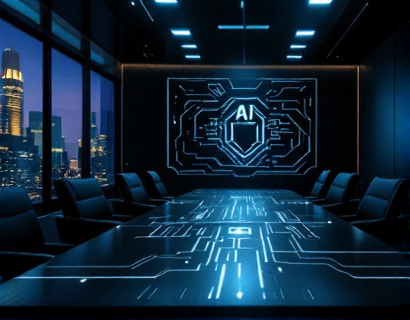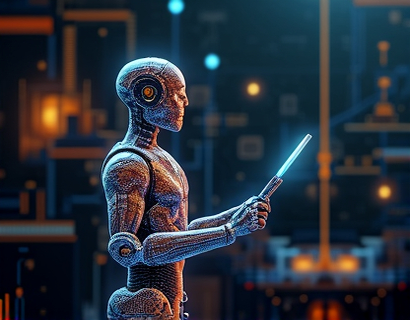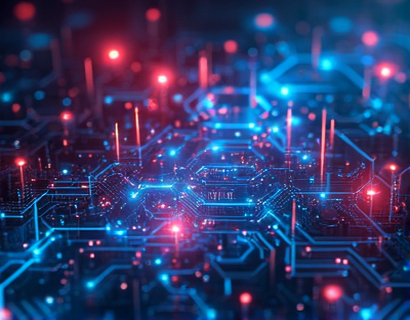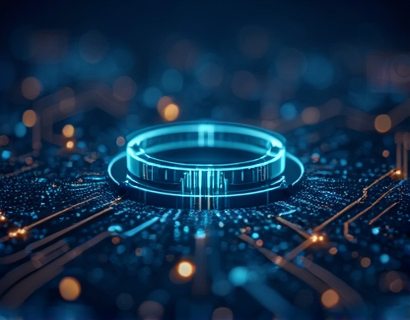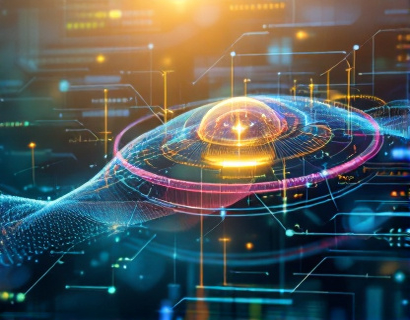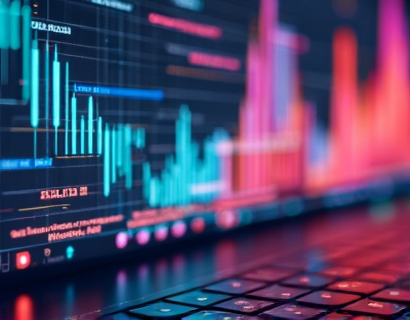Revolutionizing App Ecosystems: The Synergy of Crypto and AI
The integration of cryptocurrency and artificial intelligence is ushering in a new era of digital innovation, fundamentally transforming app ecosystems. This convergence of technologies is not just a trend but a pivotal shift that promises to enhance connectivity, security, and user experiences across various digital platforms. As we delve into this topic, it's essential to understand the foundational elements of both crypto and AI, and how their synergy is redefining the landscape of technology.
Understanding Cryptocurrency and Artificial Intelligence
Cryptocurrency, at its core, is a digital or virtual currency that uses cryptography for security and operates on a decentralized network, typically a blockchain. This decentralized nature eliminates the need for intermediaries, making transactions more transparent, secure, and efficient. On the other hand, artificial intelligence involves the simulation of human intelligence processes by machines, particularly computer systems. These processes include learning, reasoning, and self-correction, enabling AI to perform tasks that traditionally required human intervention.
The intersection of these two technologies creates a powerful synergy. Cryptocurrency provides a secure and decentralized medium for transactions, while AI enhances the functionality and user experience of applications built on these networks. Together, they offer a robust framework for developing advanced digital solutions that are not only secure but also intelligent and adaptive.
Enhancing Security through Crypto and AI
One of the most significant benefits of combining cryptocurrency and AI is the enhancement of security measures in app ecosystems. Traditional security protocols can be vulnerable to sophisticated cyber attacks, but the integration of AI can significantly bolster defense mechanisms. AI algorithms can detect and respond to anomalies in real-time, identifying potential threats before they materialize.
For instance, machine learning models can analyze patterns in transaction data to spot unusual activities indicative of fraud. These models continuously learn from new data, improving their accuracy over time. When applied to blockchain networks, AI can monitor the entire ecosystem, ensuring that all transactions adhere to predefined security protocols. This dual-layer security approach not only protects user data but also builds trust in the digital environment.
Optimizing User Experiences with AI
AI plays a crucial role in optimizing user experiences within app ecosystems. By leveraging advanced algorithms, AI can personalize content and services based on user behavior and preferences. This personalization extends to everything from recommended products to tailored notifications, creating a more intuitive and user-friendly interface.
Moreover, AI-powered chatbots and virtual assistants can provide instant support and guidance, reducing the need for human intervention. These AI-driven tools can handle a wide range of queries, from simple troubleshooting to complex problem-solving, ensuring that users receive timely and accurate assistance. The seamless integration of these tools within cryptocurrency-based apps enhances the overall user experience, making interactions more efficient and satisfying.
Decentralized Applications and Smart Contracts
Decentralized applications (dApps) are a prime example of how crypto and AI can revolutionize app ecosystems. dApps operate on blockchain networks, leveraging smart contracts to automate and enforce agreements without the need for intermediaries. Smart contracts are self-executing contracts with the terms of the agreement directly written into code. AI can further enhance the functionality of smart contracts by adding layers of intelligence and adaptability.
For instance, AI can analyze market conditions and dynamically adjust the parameters of a smart contract to optimize outcomes. This capability is particularly useful in financial applications, where market volatility requires rapid and intelligent decision-making. By combining the immutability and transparency of blockchain with the intelligence of AI, dApps can offer unprecedented levels of trust and efficiency.
Supply Chain Management and Transparency
Supply chain management is another area where the synergy of crypto and AI can drive significant improvements. Traditional supply chains are often plagued by inefficiencies, lack of transparency, and fraud. Blockchain technology provides a decentralized ledger that records every transaction in a secure and immutable manner, while AI can optimize the entire process by predicting demand, managing inventory, and detecting fraudulent activities.
AI algorithms can analyze vast amounts of data from various sources, including sensors and IoT devices, to provide real-time insights into the supply chain. This data can be used to identify bottlenecks, optimize routes, and ensure that products are tracked accurately from production to delivery. The combination of blockchain and AI ensures that all parties in the supply chain have access to the same transparent and verifiable information, reducing disputes and enhancing trust.
Financial Inclusion and Accessibility
The integration of cryptocurrency and AI has the potential to promote financial inclusion and accessibility. Traditional financial systems often exclude a significant portion of the global population due to high costs and complex regulations. Cryptocurrency, with its decentralized nature, can provide a more accessible and affordable alternative. AI can further enhance this by offering tailored financial services and products that cater to the needs of underserved communities.
For example, AI-driven credit scoring models can evaluate the creditworthiness of individuals based on alternative data sources, such as mobile phone usage and social media activity. This approach can help banks and financial institutions extend credit to those who might otherwise be overlooked. Additionally, AI-powered financial advisors can provide personalized investment recommendations, empowering users to make informed decisions and build wealth.
Challenges and Considerations
While the potential benefits of merging cryptocurrency and AI are substantial, there are also challenges and considerations that must be addressed. One of the primary concerns is regulatory compliance. The decentralized and often anonymous nature of cryptocurrencies can pose challenges for regulators aiming to enforce laws and prevent illegal activities. However, the use of AI can aid in compliance by providing tools to monitor and analyze transactions, ensuring that they adhere to legal standards.
Another challenge is the technical complexity involved in integrating these technologies. Developing robust and secure systems that leverage both crypto and AI requires expertise in multiple domains. Collaboration between developers, blockchain experts, and AI specialists is essential to overcome these technical hurdles and create innovative solutions.
Future Prospects and Innovations
Looking ahead, the future of app ecosystems powered by cryptocurrency and AI is promising. As technology continues to advance, we can expect even more sophisticated applications that combine the strengths of both fields. For instance, the development of decentralized autonomous organizations (DAOs) is an area where AI can play a crucial role. DAOs are community-driven organizations governed by smart contracts, and AI can enhance their decision-making processes by analyzing data and predicting outcomes.
Furthermore, the rise of Web3, a decentralized internet powered by blockchain, AI, and other emerging technologies, holds the potential to redefine how we interact online. Web3 applications will be more secure, private, and user-centric, thanks to the synergy of crypto and AI. These applications will not only transform how we use the internet but also how we conduct business, manage identities, and interact with digital content.
In conclusion, the convergence of cryptocurrency and artificial intelligence is revolutionizing app ecosystems, offering enhanced security, personalized user experiences, and efficient operations. As this synergy continues to evolve, it will drive innovation and create new opportunities across various industries. For tech enthusiasts and professionals, understanding and embracing this transformation is key to staying ahead in the rapidly evolving digital landscape.



